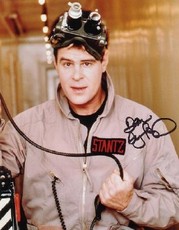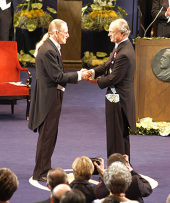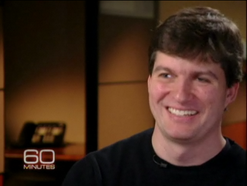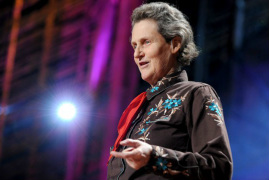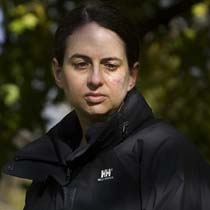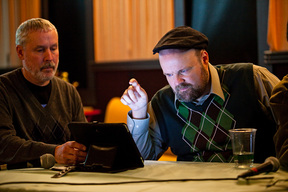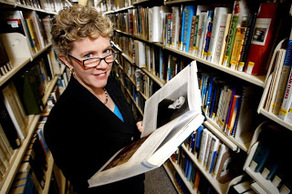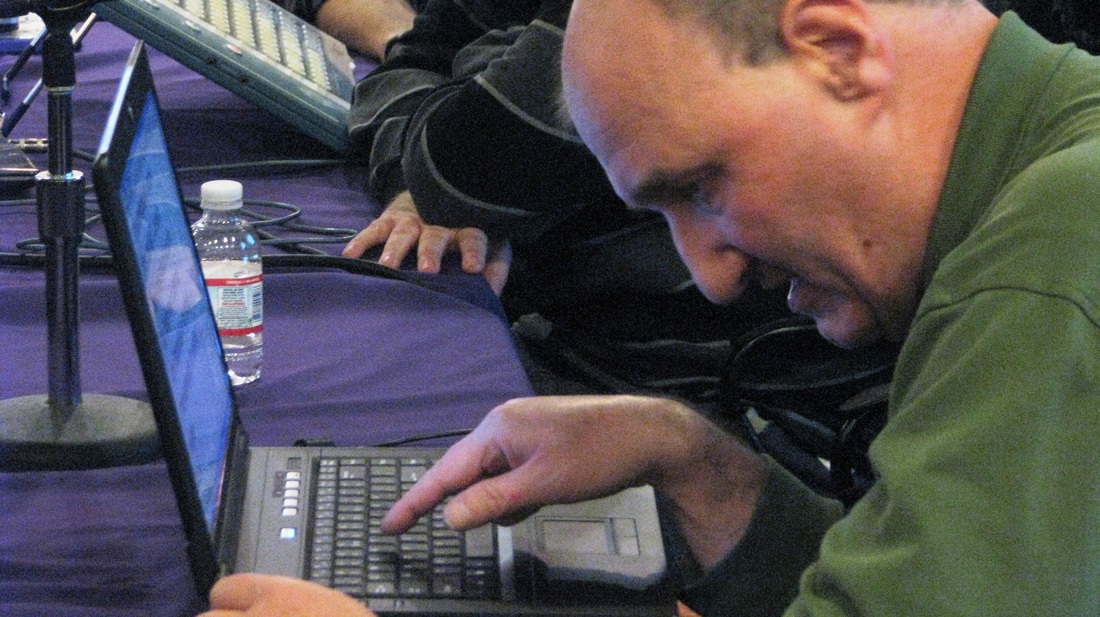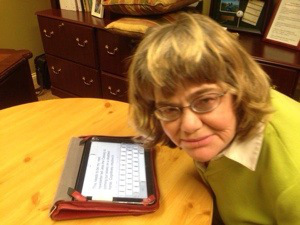All Kinds of Minds:
Don't Put Limits Because of Labels
When my sister was growing up, people were quick to tell us what she couldn't do. She'd never go to a normal school, never keep up with the other children, never read, never write an essay, never pass an Honors class, never pass an AP class, never get into university Honors, never be able to live away from home. In short, she'd never be where she is today, having done all of those things and more. Yet with each new hurdle passed, and each naysayer discredited, a new person steps up to take their place.
It is with this background that I write this today and tell you that you cannot judge a person's abilities by their neurology. Just like neurotypical people, the abilities of people on the spectrum are diverse and cannot simply be boxed into one category. As evidence, I offer up a whole host of people who have broken all the "autistic people can't ______" naysayers and are the top performers in their fields - and also happen to be autistic. Don't believe me? Click on their names and read up on them. Every last one of these people is on the autism spectrum.
It is with this background that I write this today and tell you that you cannot judge a person's abilities by their neurology. Just like neurotypical people, the abilities of people on the spectrum are diverse and cannot simply be boxed into one category. As evidence, I offer up a whole host of people who have broken all the "autistic people can't ______" naysayers and are the top performers in their fields - and also happen to be autistic. Don't believe me? Click on their names and read up on them. Every last one of these people is on the autism spectrum.
Now, is every autistic person some sort of savant-like superman? Certainly not, although that is certainly a widespread myth on the other extreme. Autistic people are just as human as you or I and subject to the same limitations, if not more in some areas due to their minority status. Just as most neurotypical people won't go on to become multi-millionaires, famous actors, or Nobel Prize Laureates, it's the same with people on the autism spectrum. The idea is not to change pre-existing low expectations for people on the spectrum into high ones, but simply to show that you shouldn't have any expectations at all. My point here is that you can't judge abilities solely by autism labels. The world needs all kinds of minds, and autistic minds are among those.
Actors
Dan Aykroyd
Field: Comedian, singer, actor, screenwriter
Details: Aykroyd is one of the original members of SNL, winning an Emmy for his writing. He went on to play Ray Stantz in Ghostbusters, a film which he also helped write, and Elwood Blues in The Blues Brothers. Another successful autistic person in this field is the actress Daryl Hannah, best known for acting in Splash, Blade Runner, Steel Magnolias, and Kill Bill.
|
Musicians
Adam Young,
|
Nobel Prize Laureates
Vernon Smith
Field: Economics
Details: A current professor at Chapman University, Smith 'has authored or co-authored over 200 articles and books on capital theory, finance, natural resource economics and experimental economics,' work which led him to win the 2002 Nobel Prize in Economic Sciences. In addition, perhaps the most famous Nobel Prize winner ever, Albert Einstein, was almost certainly autistic.
|
Models
Heather Kuzmich
Field: Modeling
Details: Kuzmich was featured on the reality TV show, America's Next Top Model, where she placed fourth. The link will take you to an interview on WrongPlanet of her discussing her life and Asperger's. In a similar field, Alexis Wineman, Miss Montana, was a competitor for the Miss America beauty pageant, and the first with autism to enter.
|
Athletes
Jessica-Jane Applegate
Field: Swimming
Details: Won gold at the 2012 Paralympics with a personal best swim of 2 minutes 12.63 seconds at age fifteen. Another accomplished autistic athlete is American surfer Clay Marzo, who won the National Scholastic Surfing Association (NSSA) Nationals competition at age 15.
|
Game Designers
Satoshi Tajiri
Field: Video Game Designer
Details: Taijiri was the creator of the hugely popular video game Pokémon, 'the second-most successful and lucrative video game-based media franchise in the world.' Like many successful autistic people, he took his passions (in his case, for bug collecting) and turned it into a career. |
Business peopleMichael Burry
Field: Finance
Details: A hedge fund manager and former physician, Burry made over $100 million for himself and $700 million for his hedge fund investors by successfully predicting the housing bubble collapse. He's been featured in the New York Times, and the book "The Big Short: Inside the Doomsday Machine." |
AdvocatesTemple Grandin
Fields: Animal science and autism advocacy
Details: One of TIME's 2010 most influential people. Towards the goal of autism advocacy, she is both a successful speaker (including in the TED talk "The World Needs All Kinds of Minds") and a prolific, successful author. She was the subject of the Emmy-award winning film, Temple Grandin. She is also an animal welfare advocate recognized as an award winning visionary by PETA. |
ScientistsField: Research
Details: Michelle Dawson's ability to notice flaws has helped make her a great researcher. In her own words: “...I have extreme versions of what are usually called autistic deficits. [...] I've been given opportunities to be in contexts where spotting anomalies at multiple scales, and pursuing them no matter what, has been sort of productive, at least so far. If I were less extreme in this respect, less “severe,” I wouldn't be useful in research in any way.” - Quote from The autistic advantage |
"Non-Speaking"
I'm using the term here to indicate people who have at least significant trouble with spoken communication at least at certain times. The intention of this is to take the preconceptions associated with people who are non-speaking and challenge them using real life examples.
The people in this section aren't as famous as those of the previous section, but I've been running into a lot of situations lately where spoken language is treated as the only factor in whether a person on the spectrum is considered successful, intelligent, or even capable of living a happy, comfortable life. My hope is that these real-life examples will challenge some of those assumptions; while I'm certain they may prove true for some, to generalize them to all is to ignore many people's cases. We'll also cover a wide range of what it means to be non-speaking (which could mean anything from non-speaking at times all the way to no speech).
The people in this section aren't as famous as those of the previous section, but I've been running into a lot of situations lately where spoken language is treated as the only factor in whether a person on the spectrum is considered successful, intelligent, or even capable of living a happy, comfortable life. My hope is that these real-life examples will challenge some of those assumptions; while I'm certain they may prove true for some, to generalize them to all is to ignore many people's cases. We'll also cover a wide range of what it means to be non-speaking (which could mean anything from non-speaking at times all the way to no speech).
Tracy ThresherTracy types to communicate and is a current autism advocate who consults and presents nationwide, and the costar of the documentary "Wretches and Jabberers," which follows himself and Larry on their global tour to change attitudes about disability and intelligence.
In his own words: Interview, Tracy's Blog Paula Durbin-Westby
|
Larry BissonnetteLarry has very limited speech and now types to communicate; he was institutionalized for much of his life. He is now an autism advocate and artist, and the costar of the documentary "Wretches and Jabberers."
In his own words: Interview (includes Tracy), Larry's Blog Barb RentenbachLike Larry and Tracy, Barb types to communicate, and is an author, CEO, presenter, and Autistic advocate.
In her own words: Barb's blog |
Up Next: The Negative Autism Narrative
In The Negative Autism Narrative we discuss the negative impact that can be inadvertently caused by media portrayals of autism, good intentions gone bad, autism awareness campaigns, and the idea of mourning for a child born with autism. Thankfully, to combat all this bad news we'll have suggestions for what you can do to combat this negative narrative sculpted around autism, and how we can improve this narrative for those on the spectrum who have to live with it every day.
